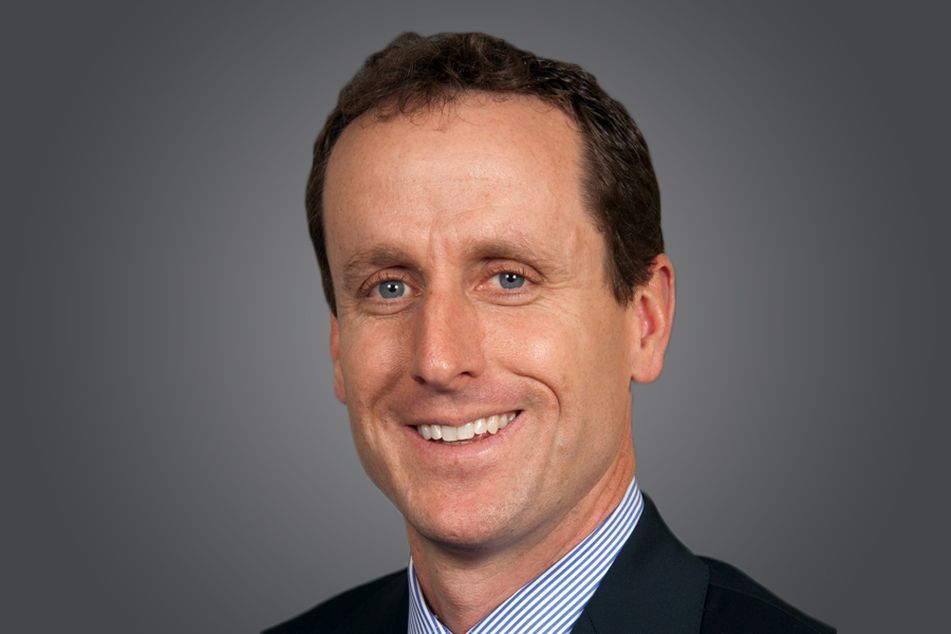There’s a ‘turf war’ coming in financial advice
 1
1
Financial advisers may find it harder to compete as large firms encroach more on mass-affluent customers, says Fidelity's Michael Durbin.
A “turf war” is brewing in the financial advice industry as firms across the advice continuum, from discount brokers and robo-advisers all the way up to private banks, have started branching into new market segments — a trend that will challenge financial advisers looking to win new business, according to Michael Durbin, president of Fidelity Institutional.
The impending turf war is happening “as firms of all shape and size begin to train their sights on a broader swath of the end-customer market,” Mr. Durbin said Wednesday, addressing an audience of roughly 125 attendees at InvestmentNews‘ Future of Financial Advice conference in New York.
“This will mean people will be bumping into each other’s elbows” in the short term, as firms and advisers compete for this market of customers, Mr. Durbin said.
As of June 30, Fidelity offered clearing and custody services for $2.3 trillion in assets and 3,950 total clients, such as registered investment advisers.
Technology has facilitated the blurring of lines between robo-advisers, which have traditionally targeted the savings of everyday Americans, but are moving upmarket; and private banks, which are moving down-market from their historical focus on the most affluent investors, Mr. Durbin said.
The shift is converging on a segment of the population known as the mass affluent, which account for more than 70% of U.S. households and therefore represent a large opportunity, he said.
Goldman Sachs is the “epitome of the reach down-market,” Mr. Durbin said.
The firm caters to high-net-worth and ultrahigh-net-worth individuals via Goldman Sachs Private Wealth Management and The Ayco Co. However, in May, Goldman announced its acquisition of United Capital and subsequent plans to offer digital wealth management services through Marcus, its online bank. Both United Capital and ultimately its robo-adviser will be targeting mass-affluent clients.
Goldman also bought Honest Dollar, a digital retirement savings platform, in 2016, and personal finance app Clarity Money last year — both of which can help it cater more to the average investor.
“[Goldman] is stringing incremental pearls on that strand as they go after a broader addressable market,” Mr. Durbin said.
As large providers move down-market, advisers need clearly defined value propositions “in order to win,” he said.
Mr. Durbin highlighted other challenges for financial advisers as well, such as organic growth and the models advisers use to charge client fees.
“This industry has a persistent organic growth challenge,” he said, emphasizing that the stock-market bull run since the financial crisis has masked it.
In 2017, he said, the oldest baby boomers hit 70½, the age at which they have to start taking required minimum distributions from their retirement accounts. Advisers will feel more pressure as their older clients draw more from their accounts due to RMDs.
Firms should target an annual organic growth rate of at least 6% to 7% — a “big lift” from the current status — which gives them a chance at double-digit net growth after adding in market returns, Mr. Durbin said. Cost-cutting and mergers and acquisitions can no longer make up for lackluster organic growth, he said.
In addition, pricing in the financial advice business is “all over the place,” Mr. Durbin said.
The industry is still deeply entrenched in an asset-based fee model, but there’s “absolutely no relationship” between the number of services advisers are offering clients and the fee they charge clients, Mr. Durbin said. Consequently, clients generally don’t know what they’re paying.
Firms that charge in nontraditional ways — with fees that are more transparent and clearly defined for different services — could have a leg up, he said.
Learn more about reprints and licensing for this article.








